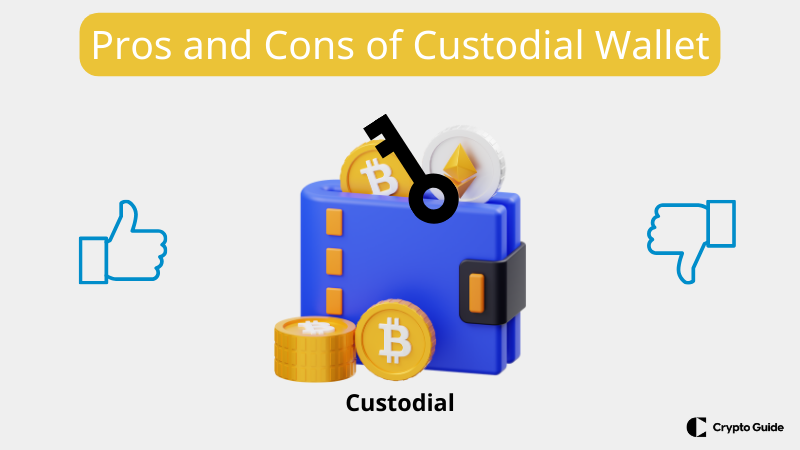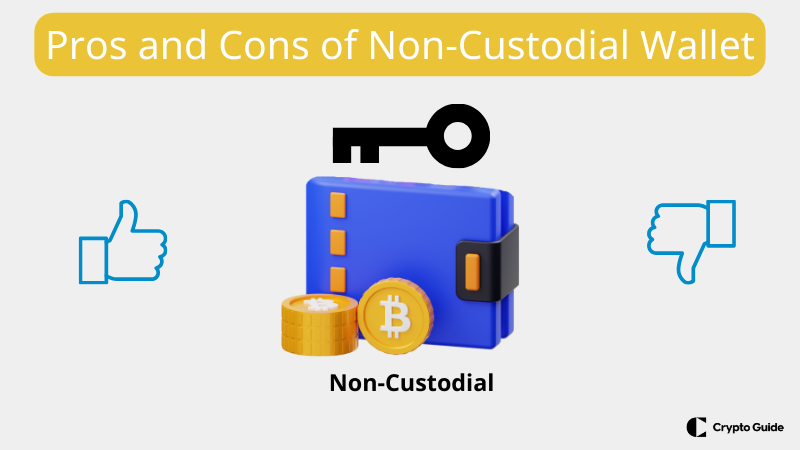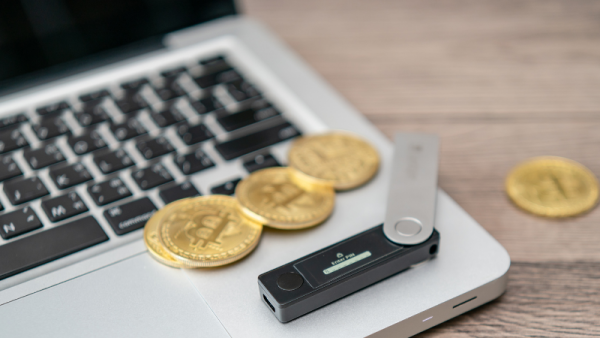Custodial vs Non-Custodial Wallet
What is the difference between custodial and non-custodial wallets which are the two main types of cryptocurrency wallets?
This article provides custodial vs non-custodial wallet analysis, and explores these wallet types, covering features, security, and user experience, helping you make an informed decision.
Table of content
What is a Custodial Wallet?
A custodian wallet is a type of cryptocurrency wallet that is managed by a third party. In other words, the wallet provider holds your private keys, which are used to secure your cryptocurrency. This means you do not have direct access to your funds and may have to rely on a third party to access them.
Pros and Cons of Custodial Wallet
Pros:
- Ease of use: Custodial wallets are typically easier to use than non-custodial wallets. You do not have to manage your security, as the wallet provider will do this for you.
- Security: Many custodial wallets offer additional security features, such as multi-factor authentication (MFA) and cold storage.
- Support: Custodial wallets typically offer 24/7 customer support, which can be helpful if you ever have any problems with your wallet.
- Ease of transactions: Custodial wallets are often integrated with exchanges, so it is easy to buy, sell, and trade cryptocurrency.
- Reduced risk of loss: Custodial wallets take on the risk of losing your funds, so you don't have to worry about losing your keys or being hacked.
Cons:
- Less control: You have less control over your funds when you use a custodial wallet. If the third party decides to freeze your account, you may not be able to access your funds.
- Higher fees: Custodial wallets often charge higher fees than non-custodial wallets.
- More vulnerable to hacking: Custodial wallets are more vulnerable to hacking than non-custodial wallets, as the third party has access to your private keys.
- Less privacy: Transactions with custodial wallets are less private than transactions with non-custodial wallets, as the third party can see your activity.
- Risk of fraud: There have been cases of custodial wallet providers misusing or defrauding the funds of their subscribers. Users who trust a custodial wallet provider with their money run the danger of this happening.

What is a Non-Custodial Crypto Wallet?
A non-custodial cryptocurrency wallet is a type of wallet where you, the user, are in complete control of your private keys. This means that you are responsible for storing and managing your own private keys, which are the digital keys that allow you to access your cryptocurrency.
Pros and Cons of Non-Custodial Wallet
Pros:
- Greater security: Non-custodial wallets are generally considered to be more secure than custodial wallets, as you are in control of your private keys. This means that if the wallet provider is hacked, your funds will still be safe.
- More control: With a non-custodial wallet, you have complete control over your funds. This means that you can access your funds anytime, anywhere, and you can choose to send or receive cryptocurrency without the need for permission from anyone else.
- More privacy: Transactions with non-custodial wallets are more private than transactions with custodial wallets, as the wallet provider cannot see your activity.
- No risk of fraud: Since you are in control of your private keys, there is no risk of a wallet provider misusing or defrauding your funds.
- No need for KYC: Non-custodial wallets do not require KYC, which means that you do not need to provide personal information to use them and remain anonymous.
- Can be used on different devices: Non-custodial wallets can be used on different devices, including computers, smartphones, and tablets. This means that you can access your funds from anywhere in the world.
Cons:
- More complex: Non-custodial wallets can be more complex to use than custodial wallets. You will need to understand how to manage your own security and how to use various tools, such as seed phrases and private keys.
- Greater risk of loss: If you lose your private keys, you will not be able to access your funds. This is why it is important to back up your private keys securely.
- Less support: Non-custodial wallet providers may not offer as much support as custodial wallet providers. This means that you will need to be more self-sufficient when it comes to troubleshooting any problems you may encounter.
- Can be more difficult to buy and sell cryptocurrency: Non-custodial wallets may be more difficult to use to buy and sell cryptocurrency. This is because you will need to use a decentralized exchange (DEX), which can be more complex to use than a centralized exchange (CEX).
- Not insured: Non-custodial wallets are not insured. This means that if you lose your funds due to theft or fraud, you will not be able to get them back.

Custodial vs Non-Custodial Wallet: Which to Choose
The best type of wallet for you will depend on your individual needs and risk tolerance. Below, we discuss the main features and compare the wallets.
Custodial and Non-Custodial Wallets Security
Custodial wallets are managed by a third party, such as an exchange or a wallet provider. This means that the third party is responsible for storing your private keys and managing your funds. Custodial wallets are typically more user-friendly and convenient than non-custodial wallets, but they also come with some security risks. If the third party is hacked, your funds could be stolen.
Additionally, custodial wallets may not be as private as non-custodial wallets, as the third party may be able to see your transaction history.
Non-custodial wallets are more secure because they are self-hosted, which means that you are responsible for storing your own private keys and managing your funds. They are more secure than custodial wallets, as you are the only one who has access to your funds. However, non-custodial wallets can also be more complex to use and more prone to human error.
Easy of Use: Custodial Wallets vs. Non-Custodial Wallets
Custodial wallets are typically more user-friendly than non-custodial wallets. This is because the third party managing the wallet handles the complex tasks of storing your private keys and managing your funds. You can typically access your funds and make transactions with just a few clicks or taps.
Non-custodial wallets require you to handle the security of your own private keys, which can be more complex and time-consuming. You may need to manually generate a seed phrase, store it securely, and then restore it if you lose your device.
Costs of Custodial and Non-Custodial Wallets
Custodial wallets generally charge lower fees than non-custodial wallets. This is because custodial wallets typically have lower overhead costs, as they do not need to invest in infrastructure for storing and managing private keys. Also, some custodial wallets may offer discounts or promotions to attract new users.
Non-custodial wallets can be more expensive than custodial wallets, as they may require you to pay transaction fees to non-custodial wallet creators for the swaps within the wallet as well as higher withdrawal fees. Moreover, non-custodial wallets may charge fees for additional features.
Final Thoughts
Custodial wallets, managed by a third party, offer convenience for those uncomfortable with self-security.
Non-custodial wallets provide greater security and control through self-management of private keys, ensuring fund safety even in provider hacks. However, they are more complex and require users to take on more security responsibility.
Choosing between custodial and non-custodial wallets depends on individual needs. Custodial wallets suit simplicity and convenience, while non-custodial options are preferable for those prioritizing security and full fund control.
FAQ About Custodial And Non-Custodial Wallets
What is the difference between custodian and non-custodial wallets?
Custodial wallets are owned and managed by a third party, while non-custodial wallets are owned and managed by the user.
Why use a non-custodial wallet?
Non-custodial wallets are more secure than custodial wallets as you are in control of your private keys.
Do non-custodial wallets need KYC?
No, non-custodial wallets do not need KYC. Consider exploring our list of the best no-KYC anonymous wallets to maintain your privacy
Which crypto wallets are custodial?
Coinbase, Binance, and Gemini are some examples of custodial crypto wallets.
Which crypto wallets are noncustodial?
MetaMask, Exodus, and Trust Wallet are some examples of non-custodial crypto wallets.



